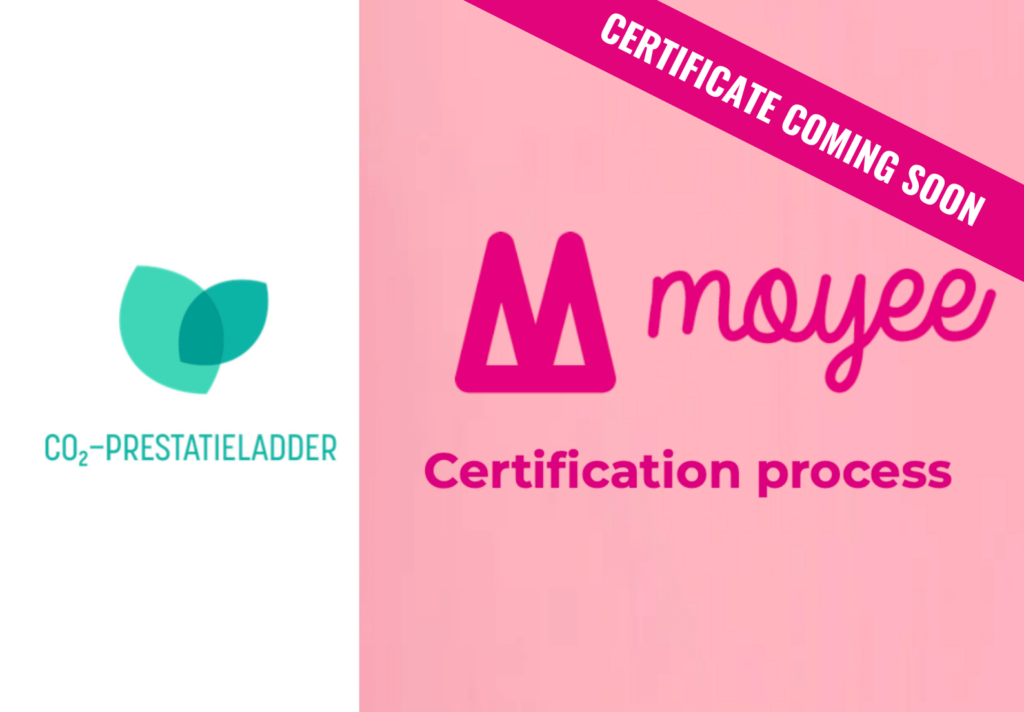MOYEE IS CO2 neutral! With every Kilo of Moyee you help in the Fight Against Climate Change.
LET'S FIX THE FUTURE!
The future holds chaos, deep societal divides, and ever-increasing inequality that will lead to growing poverty, deforestation, and climate change. One thing is clear: now more than ever, we need to design better business models to solve these problems, rather than adding to them.
The FairChain and Moyee company builds itself around Economic, Social and Environmental impact. The latest update of the Environmental impact is in the CO2 performance ladder. We hope it inspires you to make a difference! Thanks for all the support over the years and… Lets fix the future!
LET'S TALK ABOUT NUMBERS!
When it comes to environmental goals, the number our stakeholders prioritize is carbon footprint.
Our carbon footprint is simply the lowest, at the farmer level. This is because our farmers pick the cherries by hand, and otherwise avoid pesticides and fertilizers. A recent victory in the quest to reduce our carbon footprint was in 2020, a container of solar panels was sent to Ethiopia. We will use these panels to move the diesel generator in our wet mill in Ethiopia, which directly reduces the carbon footprint.
To measure the environmental impact of FairChain we have created a fairly simple framework with the 3 most important impact indicators:
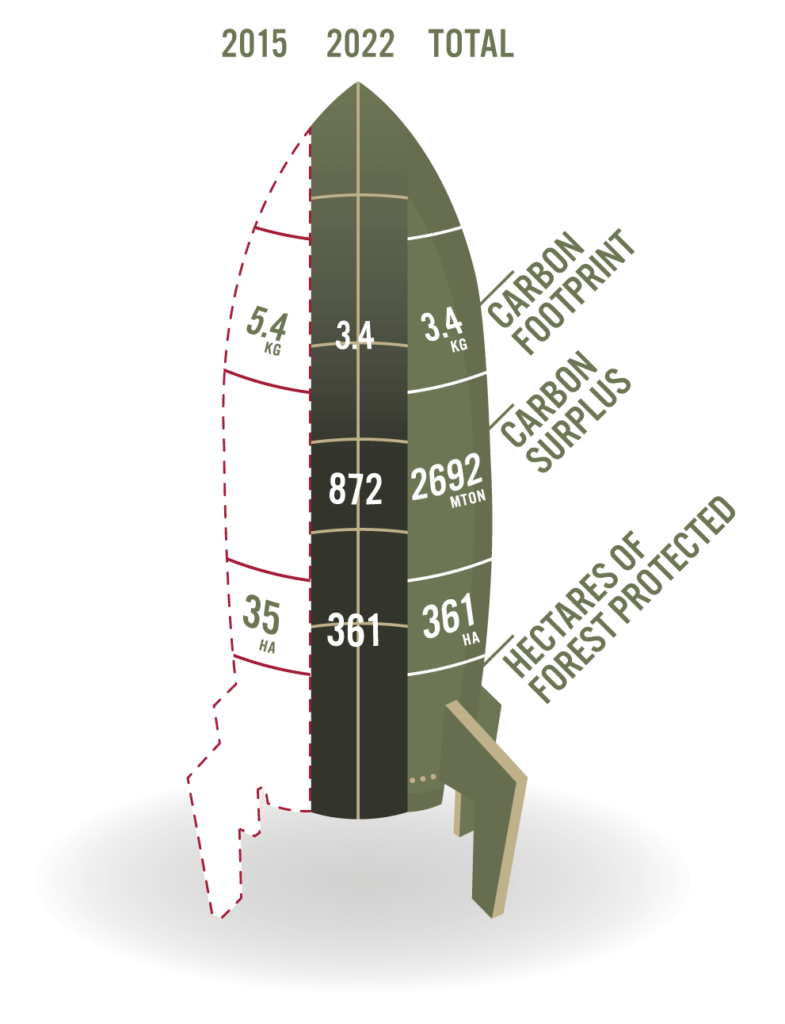
3kg
Carbon footprint
Many coffees have a carbon footprint of 8 or 9 kg CO2 per 1kg bag of coffee, but Moyee Koffie's is only 3.4kg. We believe we can still improve this radically.
2,692MTON
Carbon surplus
Our chain enjoys 2,692 tons of carbon surplus, which means that we absorb more CO2 than we emit. This surplus is exclusive of our own ambitious carbon deployment program on the Mizan farm where we protect 361 hectares of natural forest plantations in Ethiopia. We will soon increase our surplus by planting 400,000 coffee trees, which will absorb another 1,900 tons of CO2.
361Hectares
Forest protected
Over the past few years, Moyee has worked hard to shape our business model to not only combat deforestation, but to reclaim lost forests, enabling coffee farmers to earn a living income from their beans, while rewarding and celebrating agroforestry coffee production.
Moyee is the only coffee company that absorbs more CO2 than it produces. With every kilo you drink, you help in the fight against climate change.
As we learned more about the challenges our farmers face, it became increasingly clear how much their future was intertwined with our future. As forest dwellers, farmers are on the front lines of climate change. Their environmentally friendly farming practices protect forests—forests that are essential to our survival in the West.
In the past 20 years, Ethiopia has lost about 18% of its forests, equivalent to 71,100 thousand hectares, enough trees to absorb the entire annual CO2 emissions of the Netherlands. Each year, Ethiopia loses another 140,000 hectares to deforestation.
Working in the coffee industry, we became climate activists out of necessity. At Moyee, we believe that the root cause of deforestation – and the climate change that causes deforestation – is poverty. When income from coffee production is too low to support farming families, farmers trade their semi-agroforestry coffee production for livestock or food production to feed their children.
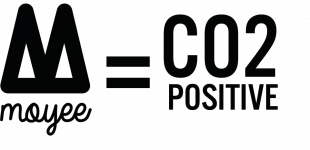
This is the big mystery in the global coffee industry today.
Big Coffee companies are making huge profits for themselves while pushing millions of farmers below the poverty line, resulting in more deforestation and increased climate change. It is one of the most vicious circles of our time.
Our goal is to prove a business model that turns negative externalities into positive externalities and sign a pledge for net zero emissions.
The importance of carbon deployment
Most people have heard of carbon staking, but what in the world does staking mean? These days, companies looking to alleviate their environmental concerns and/or balance their carbon footprint can easily pay someone to plant a few trees or invest in a few green projects.
However, this practice – so-called carbon offsetting – is increasingly coming under fire from activists as little more than 'greenwashing'.
Critics even compare it to the Catholic Church's former practice of selling indulgences; why change your behavior if you can buy away your sins?
To achieve net zero emissions by 2030, Moyee has integrated carbon capture projects into its business model – projects focused on sustainable practices and carbon footprint reduction within our own value chain.
This idea is called carbon deployment, and it is the driving force behind our 1 Million Tree Planting campaign, our low-carbon project in Kenya, and our Caffeinated Reforestation project in Mizan, Ethiopia.
“Coffee is extremely sensitive to temperature rise. Climate adaptation measures are essential to protect current coffee production. The underlying cause of deforestation is low coffee profits and unprofitable agroforestry.”
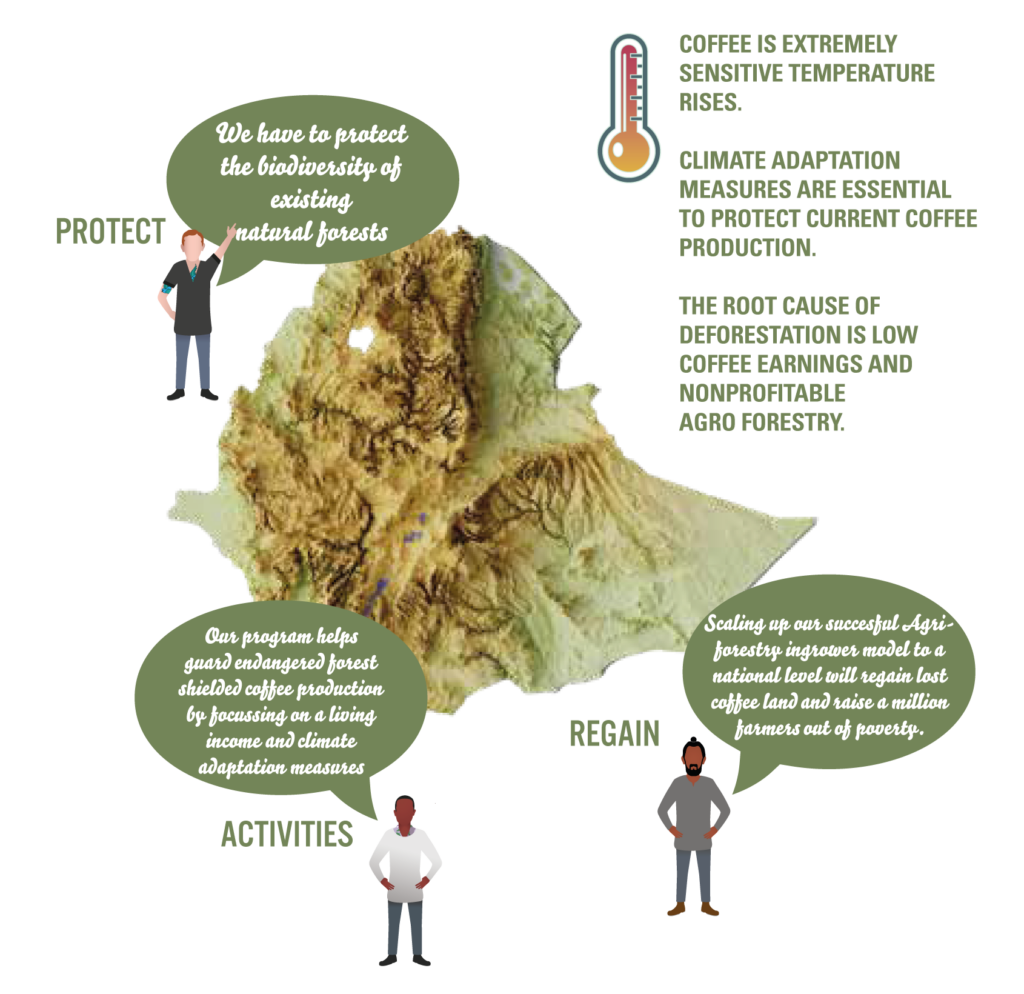
The Importance of True Pricing
From a production perspective, everything we eat, drink, wear, and consume causes some form of harm. Behind the production curtain, poverty, child labor, climate change, deforestation, biodiversity loss, forced migration, and other causes of inequality lurk.
Economists call the dark elements that arise from the production process 'negative externalities'. The big problem is that nowadays the costs of all negative externalities are almost always left out of the pricing of products. They are excluded to keep products artificially cheap. Huh?! How is that possible?!
Let us explain. The classical economic theory that guides most business models today holds that the market is always right. That the forces of supply and demand lead to market equilibrium, and that competition always leads to an efficient and fair allocation of resources.
But where do we find the monetization of negative externalities in this equilibrium? Well, it can’t be, because it doesn’t exist. From an environmental perspective, this economic theory has failed us. That’s why the Sustainable Development Goals (SDGs), set by the United Nations, are so incredibly important. It provides a shared blueprint for peace and prosperity for people and planet. It corrects the many misunderstandings of classical theory. The UN SDGs demand a radical shift in consciousness of doing business. Fortunately, radical shifts in consciousness are Moyee’s raison d’être. From day one, our mission was to change the growth, production, and sale of coffee.
By using the True Price method, we find ways to monetize the positive and negative externalities of our production. The True Price method helps to manage risk, guide innovation, reduce social and environmental costs, and compare our prices with those of the industry.
Our ambition is to show the coffee world a business model that reduces negative externalities and helps finance positive externalities, from reforestation to climate-smart farms. The true price of a product is the market price plus the external environmental and social costs of production . Consumers today pay the market price of a product. The external costs are almost always ignored. Instead, the costs are transferred to other parties and our beautiful planet. Our goal is to create a business model that generates positive externalities and cleans up 50 years of neoliberal debris. Help us solve the future!
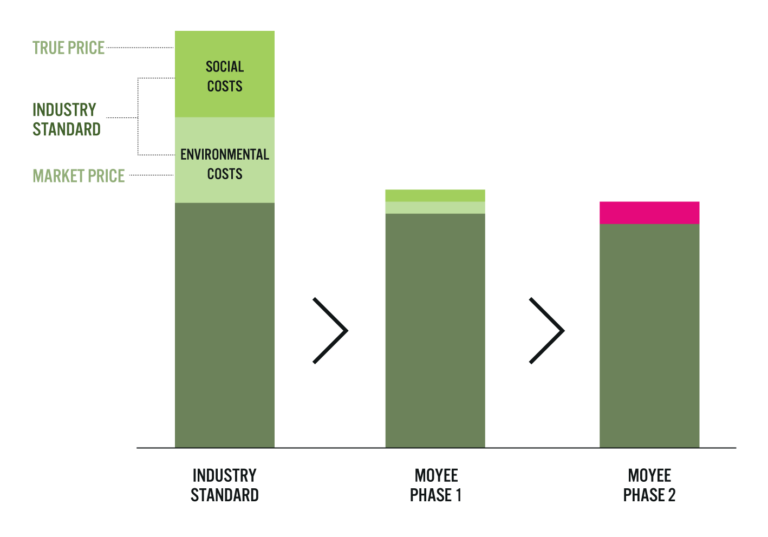
Successes
1. The Beginning of the 1 Million Tree Revolution
As discussed earlier, poverty and deforestation go hand in hand. This begs the question: can you tackle both problems at the same time? That is what we are trying to do with our 1 Million Tree Revolution, a campaign aimed at planting 1 million new coffee trees in our farming communities.
In addition to combating deforestation and absorbing around 1.9kg of CO2 from the air (equivalent to 3,800 return flights between Amsterdam and Barcelona), the trees can also double the average income of farmers. In 2020, we grew 400,000 seedlings in a local nursery, seedlings that are now ready to be planted with the help of a committed consumer campaign.
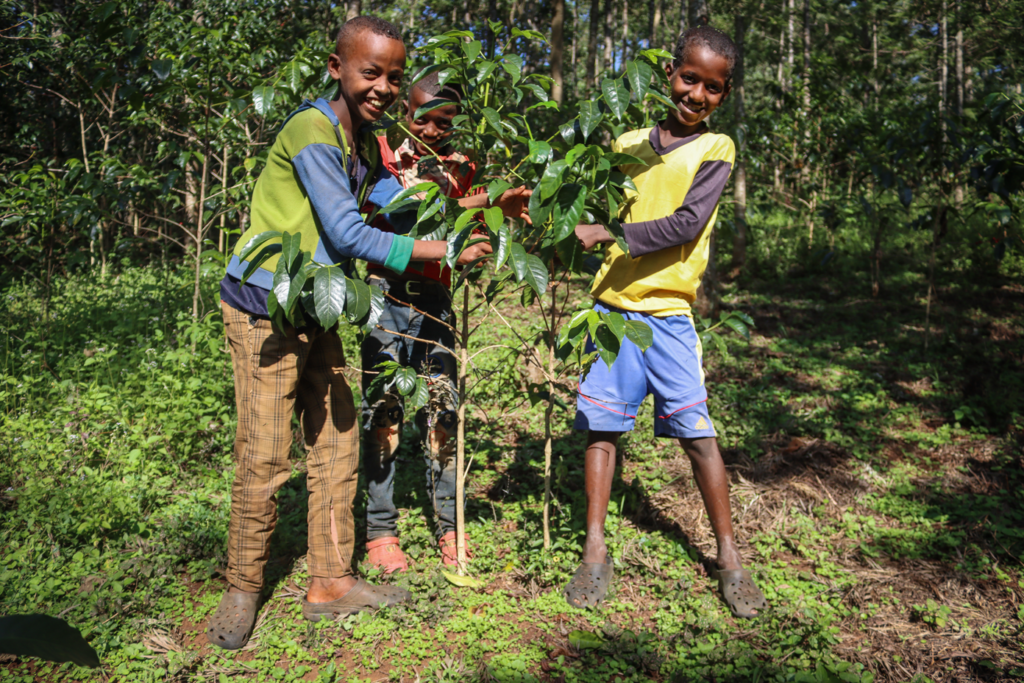
2. Low Carbon Coffee Kenya
Unlike farmers in Ethiopia, farmers in Kenya use a lot of artificial fertilizers. At the beginning of our FairChain Farming program in Kenya, it became our focus to change that. Last year, we trained the first 2,400 farmers and built the first factory with them to produce bio-compost and bio-fertilizers at a lower cost than existing alternatives.
This not only creates jobs, it reduces the cost of production for farmers and increases their income, improves soil fertility, improves the health of the coffee plants, and restores biodiversity. Intercropping is an important part of our strategy because it leads to more profit for farmers and more food security for their families. Profitable farmers are crucial for a prosperous planet.
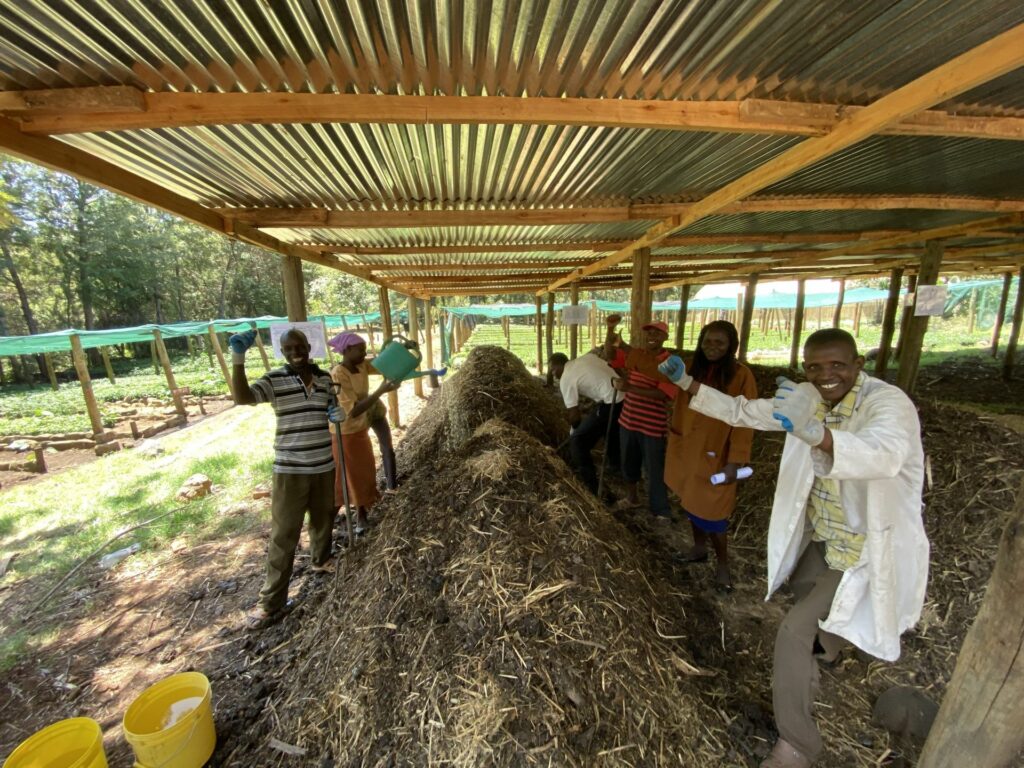
3. Rainforest Alliance certification
We have always been vocal about our distaste for certification programs. It is nothing personal, they are just expensive and not meant for companies like Moyee who are already at the forefront of climate change. We would rather invest all that money in our farmers, especially since we are already going way beyond typical certification standards.
We decided to join the Rainforest Alliance simply because some of our largest customers demanded it. And let’s be honest, the environmental requirements of the RFA certification are quite useful. Since joining, 580 more farmers have been certified with our FairChain Farming program. That said, we still believe that certification programs are expensive, but it is easier to pay for certification than to constantly explain all the reasons against it. So we are RFA certified.
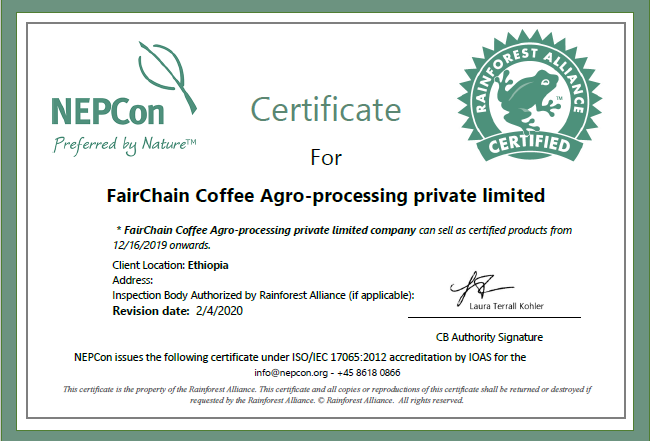
4. Awakening for the last mile
With so much focus on the farmer, we have often neglected the impact program closer to home in Amsterdam. Why bother with 'last-mile' circularity, solar panels on the roofs, and office waste management when our farmers live in poverty? Originally, our mission was entirely focused on the 'first-mile'.
Last year, however, we launched an ambitious sustainability program for the last mile, including reusable bamboo mugs, compostable to-go cups, a coffee waste recycling service for our customers, and recyclable bags. We admit we were late with the last mile, but we’re trying our damnedest to make up for it.
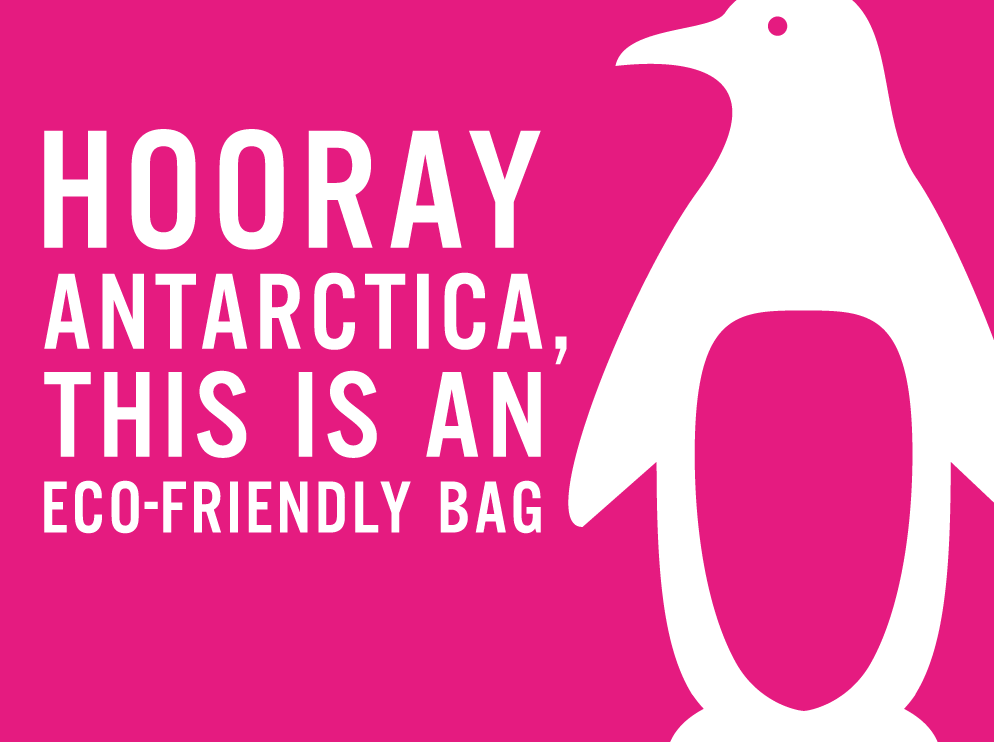
5. True Cost Pricing in Colombia
We invited MVO Nederland Moyee to join the Futureproof Coffee Collective, a group of progressive coffee companies with an interest in research into True Cost Pricing.
We are experimenting with True Cost Pricing for our farmers project in Floridablanca, Colombia. This project gives us better insight and practical knowledge about the True Price methodology, not only in Colombia, but also in our impact programs in Kenya and Ethiopia.
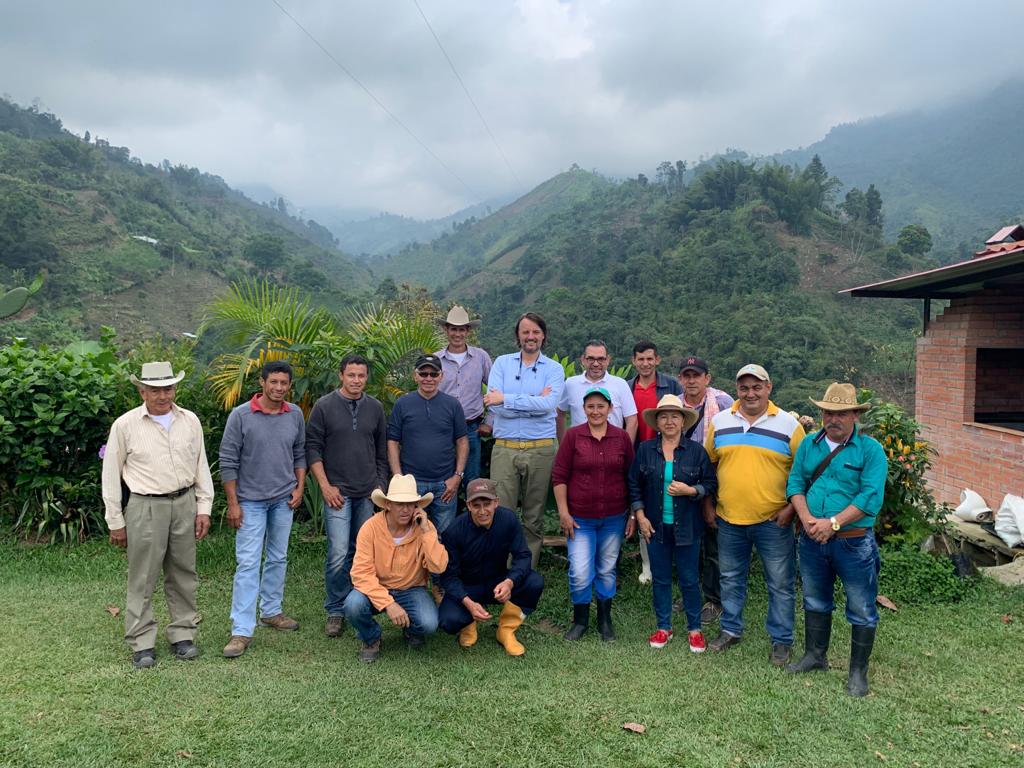
6. CO2 Performance Ladder
At Moyee Coffee, we are committed to a better world, one cup at a time. That is why we are happy to share with you the CO2 Performance Ladder, a powerful tool to help organizations reduce their CO2 emissions. It not only offers a greener guide, but also a competitive edge in green procurement.
The CO2 Performance Ladder consists of five certification levels. Levels 1 to 3 focus on emissions within the organization and projects, while levels 4 and 5 also focus on the entire chain and sector. Each level requires that four core principles are met:
– Insight: Mapping energy consumption and carbon footprint.
– Reduction : Setting ambitious targets to reduce carbon emissions.
– Transparency : Open and consistent communication about carbon reduction policies.
– Participation : Participation in sector-wide initiatives for joint carbon reduction.
At Moyee Coffee, we believe in walking our talk. With tools like the CO2 Performance Ladder, we all contribute to a more sustainable future. Join us—together we can make a real difference.
Read CO2 policy statement HERE
Read more about the Performance Ladder and the Climate-Friendly Procurement & Business Foundation (SKAO) HERE .
Dilemmas
Mizan farm:
Looking for a new model
Ever tried to make a living off of less than 1 hectare of land? Well, 95% of coffee farmers in Ethiopia do. Trust us, it’s not much. So when we were looking for ways to transform poverty farmers into profitable farmers, we had to address the problem of scale.
Of course, it is risky to approach scale in isolation, as it leads to a focus on maximizing efficiency and profit, as in modern industrial coffee farms – industrial farms that replace natural forests (with natural shade) with monocultures.
'Sure, overuse of toxic herbicides, pesticides, and synthetic fertilizers, along with wasteful water practices, increases yields, but they ultimately destroy topsoil faster than it is created. So no, industrial agriculture is not the solution to lifting small coffee farmers out of poverty.
For the environment, it would be better to stop drinking coffee altogether! God forbid! At Moyee, we have made it our mission to be part of the solution, not the problem. When we opened in 2012, we were not climate activists and we didn’t claim to be. None of us were on the front lines of Seattle or Paris.
But over the past eight years, we have personally witnessed the degradation of Ethiopia’s natural coffee landscapes due to climate change. We have seen with our own eyes coffee farmers too poor and powerless to fight the economic and political forces that drive deforestation. That’s why we founded Mizan, a model coffee farm in the Ethiopian highlands that is fully aligned with FairChain’s economic, social, and environmental goals.
To be clear, we are coffee roasters, not coffee farmers. But in order to build a new model for growing, producing, and distributing coffee, we realized we literally had to get our hands dirty and get into agriculture.
With our Mizan farm we have removed as many obstacles as possible to put our FairChain theory into practice. The goal is to create a blueprint for coffee production that will not only allow farmers and forests to survive in the 21st century, but to thrive.
Our environmental 'to do' list
- Replacing our air freight from Addis with sea freight, as we did with our coffee from Kenya.
- Transforming coffee husks on the farm into natural fertilizer, baking soda, and pectin. Also unveiling Ethiopia's first solar-powered wet mill.
- The kickstart of our low-carbon coffee project in collaboration with the Kenya Coffee Research Institute, Agriterra, and the FairChain Foundation, with support from the Dutch government.
- We are increasing our climate positivity by another 988 tons, through our FairChain Caffeinated Reforestation Program, starting with 274 hectares in Mizan, Ethiopia. This program addresses the dilemma of scale, farmer living income, and biodiversity through ingrowth.
- The potential creation of a profitable blueprint for the coffee sector in Ethiopia. The blueprint has the potential to lift 1 million farmers out of poverty and transform 3.6 million ‘lost’ hectares of forest into profitable semi-agroforestry farms with increased biodiversity.



